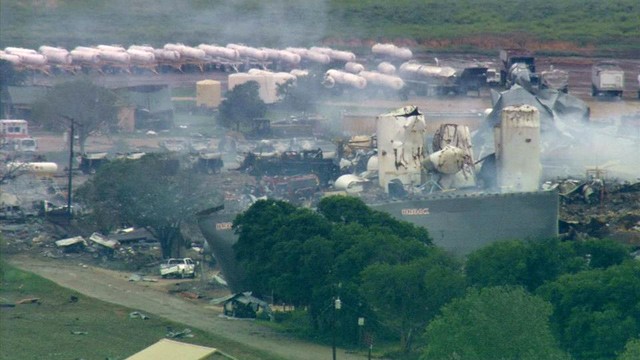Today’s post comes from guest author Tom Domer, from The Domer Law Firm in Wisconsin. It is a follow-up to a post last week. There is a disturbing trend among states to essentially gut workers’ compensation systems and laws by being “business friendly” and then calling that practice variations of “alternative worker’s compensation programs.” I always thought businesses were more profitable and successful when their employees worked in a safe environment and were taken care of if they happened to get injured on the job. And the reality is that in the race for a bigger profit, the injured workers pay in human capital. The wisely written “cautionary note to employers” below is the workers’ consolation prize, apparently.
Last week we explained Wisconsin’s rich history of protecting injured workers through its mandatory workers’ compensation system. This week we’ll look at what is happening in Texas and Oklahoma, where it is not mandatory for employers.
Alternative worker’s compensation programs( like that of Texas’—and now Oklahoma— non-subscriber / “Opt Out” scheme) have the potential to significantly reduce workplace safety. Since experience rating is a fundamental component of worker’s compensation insurance systems, the comp system provides economic incentives to employers through reduced insurance costs to companies with reduced injury rates and safe workplaces. Texas’ “opt out” option means that an employer can choose to be self insured or become a non-subscriber and opt out of worker’s compensation insurance entirely. Those employers opting out of worker’s compensation systems are not experience rated and there is no economic incentive to reduce workplace injuries and ensure safe work environments for their employees.
Most recently on April 17, 2013 a fertilizer plant exploded in Texas, killing 15 and injuring approximately 200 people. EMS workers, firefighters, and other first responders were among the casualties. The West Fertilizer Company was approved to have no more than 400 pounds of ammonium nitrate in the plant, but instead, 270 tons were reported to be on site. West Fertilizer failed to inform the Department of Homeland Security of the amount of fertilizer it had. Texas had as well the worst recorded industrial accident in America in 1947 when 3,200 tons of ammonium nitrate resulted in almost 600 deaths and 3,500 injuries.
Texas has the worst work-related fatality rate in the nation.
Texas has the worst work-related fatality rate in the nation. According to the Bureau of Labor Statistics, 433 reported fatalities occurred in 2011 alone in Texas with the highest (4.79 per 100,000 workers) for the last ten years. (Oklahoma is in line to follow).
Oklahoma’s worker’s compensation measure was signed into law May 5 and it drastically changes how Oklahomans are compensated for on the job injuries. Republican Governor Mary Fallin has tried to change the worker’s compensation system for over 20 years in State politics. She indicated the bill would reduce costs for businesses. The law changes worker’s compensation system from a judicial to an administrative one, allowing businesses to opt out of the worker’s compensation systems as long as they provide “equivalent” benefits to injured workers. Opponents of the law indicate that it is unfair to injured workers because it will reduce their benefits. The implementation of “equivalent” benefits, and what kind of injuries are covered or uncovered by those who “opt out” of the system is yet to be determined.
Cautionary note to employers: since those employers that “opt out” of worker’s compensation are no longer allowed the benefit of the exclusive remedy provision of worker’s compensation, workers who are not covered by worker’s compensation can sue their employers. For example, in a recent Colorado case where an undocumented worker (who by Statute in Colorado was not covered under worker’s compensation) received over a $1 million verdict against the negligent employer.
http://en.wikipedia.org/wiki/List_of_industrial_disasters
Worker’s compensation systems benefit both employers and workers, and the dangers of opting out of the system means a retreat to harsh industrial conditions, producing the same kind of inequities that workers’ comp remedied over a century ago. The situation calls to mind the maxim that those who don’t remember history are doomed to repeat it.



